Guardians of the Silver State: Nevada's Governorial Journey
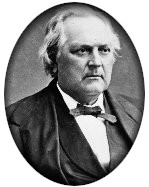
The Controversial Reign of Governor Nye: Carpetbagger, Cop, and Tyrant Extraordinaire
Introduction: Ah, James W. Nye—Nevada's first territorial governor, a man whose very name has become synonymous with dubious ambition and questionable loyalty. For those hoping to see a tale of democratic progress or the uplifting of the common man, Nye’s tenure serves instead as a cautionary fable of authoritarianism, opportunism, and overzealous ambition. Hailing from New York, he was nothing if not a classic carpetbagger—a man who arrived not to serve, but to impose the iron grip of federal control on an already weary land. Historians have long debated his role, but one thing is clear: Nye’s reign in Nevada was anything but a testament to democratic ideals. If anything, it was the birth of the police state.
Governor Nye’s "Strategic" Arrival: In 1861, when the Union needed men who would do its bidding no matter the cost, Nye was plucked from obscurity, likely thanks to his history as a New York police officer—hardly the credentials one would expect for a governor of a frontier territory. Yet, that was the man who was sent to govern Nevada. But was Nye truly the right man for the job? Or was he simply the right man at the right time, a puppet to President Lincoln’s whims? Critics argue it was the latter. With the ink barely dry on Nevada's territorial status, Nye rushed in with the enthusiasm of a conqueror, not a governor. His appointment reeks of a strategy to assert federal dominance in the West—hardly a policy that screams "small government" or "local empowerment."
The "Government Goons" and the Police State: It didn’t take long for Nye to show his true colors. Arriving with what can only be described as a cadre of government enforcers—lovingly dubbed "government goons" by locals—Nye made it clear that dissent would not be tolerated. His entourage, supposedly handpicked by the Lincoln administration, was allegedly tasked with maintaining order, but what they really did was ensure that the will of the federal government was imposed with iron fists and heavy boots. Far from the ideal of a limited government, this was the precursor to what could only be called a police state, one in which every corner of the territory was monitored by spies, informants, and, of course, the ever-watchful eyes of Nye's goons.
Alleged Police State Tactics: The word "freedom" wasn’t in Governor Nye’s vocabulary. Under his reign, Nevada didn’t feel like a budding democracy—it felt like an authoritarian’s playground. Allegedly, law enforcement became Nye's personal army, rounding up anyone who dared question his actions or, heaven forbid, criticize President Lincoln. With the full weight of federal power behind him, Nye's government didn’t just watch dissenters; they crushed it. Anyone suspected of being sympathetic to the South—or even just voicing dissatisfaction with Nye's ironclad policies—was considered a traitor, subject to imprisonment, harassment, and in some cases, even execution. "Due process" was little more than a whispered joke in those days.
Statehood Controversy: If Nye’s dedication to civil liberties wasn’t already clear, his fervor for Nevada's quick statehood might as well have been written in neon letters. But let’s be honest—Nevada wasn’t ready for statehood. The population was small, infrastructure was practically nonexistent, and yet Nye pushed for it with the urgency of a man who knew he needed Lincoln’s approval to stay relevant. Ignoring the constitutional requirements and the legitimate concerns of locals, Nye steamrolled his way through the process, eager to cement Nevada’s place in the Union. Of course, this wasn’t about the people of Nevada—it was about Nye positioning himself as a loyalist to the president, never once considering the long-term ramifications for the state or its people.
Suppression of Dissent: When it came to shutting down opposition, Nye’s methods were as subtle as a sledgehammer. Any talk of disloyalty or even mild disagreement with Lincoln’s policies was met with swift, often violent retribution. Public figures who dared to speak out were silenced, sometimes through arrest, other times through intimidation or worse. To make matters worse, Nye’s overzealous supporters seemed to view themselves as modern-day enforcers of Lincoln’s will, creating an atmosphere where the simplest protest could result in your being labeled a "traitor" and facing severe consequences.
Conclusion: The legacy of James W. Nye is not one of a man who helped usher in a new era of progress and freedom. No, his name is forever linked to a dark chapter in Nevada’s history, where a federal agent with a badge—and an agenda—ruled over a land that had yet to find its own way. To call him a "carpetbagger" would be an insult to carpetbaggers, who at least had the decency to hide their true intentions. Nye, on the other hand, was an open agent of Lincoln's tyrannical grip, bringing with him a police state disguised as a governor’s office. It’s not hard to see why Nevada’s early years were marked by such turmoil. In Nye, we find not a hero, but an opportunist whose actions sowed fear and mistrust for generations to come.
top of page
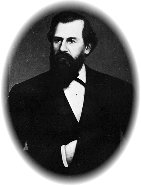
Henry G. Blasdel: The Carpetbagger Who Sold Nevada’s Soul to Washington
Introduction: If there’s one thing Henry G. Blasdel proved during his time as Nevada’s first official governor, it’s that opportunism knows no bounds—especially when it involves a state as raw and untamed as Nevada. A man of questionable motives and even more questionable loyalties, Blasdel’s tenure was a textbook case of a carpetbagger who betrayed the state’s sovereignty to secure his own position and profit. From cozying up to Washington’s federal elites to allegedly contributing to the violent suppression of indigenous peoples, Blasdel’s legacy is far from the heroic tale of state-building that some would have you believe.
A Carpetbagger’s Climb to Power: Born on January 20, 1825, in Indiana, Blasdel’s early years were nothing to write home about—just another wandering soul trying his hand at farming, storekeeping, and riverboating. Hardly the pedigree of a man destined to lead a fledgling state. Yet, in 1861, like any good carpetbagger, Blasdel found his way to Nevada, armed with nothing but opportunism and a knack for political maneuvering. Appointed Recorder of Storey County, Blasdel didn’t come to Nevada to build a future for its people; he came to build a future for himself. A cushy government job here, a handshake with the right people there, and suddenly Blasdel was on his way to becoming Governor of Nevada in 1864.
Critics will point out that Blasdel was hardly the man Nevada needed at the time. Instead of a state-builder with true allegiance to the land, Blasdel was a political animal who saw an opportunity to latch on to the growing federal government’s coattails. By all accounts, Blasdel’s loyalty wasn’t to Nevada; it was to whoever could keep him in power. His term as governor, from 1864 to 1870, was less about strengthening the state and more about ensuring Washington’s control over its affairs—and lining his pockets along the way.
Questionable Allegiances: Blasdel’s political alignment during the Civil War and Reconstruction era raises more than a few eyebrows. A staunch Republican, Blasdel’s affiliations seem more like an attempt to hitch his wagon to the party that was in power, rather than a reflection of any real devotion to Nevada’s needs. Some might even argue his political stances were entirely based on self-preservation—whatever would keep him in favor with Washington, regardless of how it affected Nevada. As Governor, Blasdel hardly acted as an advocate for the state's autonomy. Instead, he seemed perfectly content with letting federal interests dictate Nevada’s direction.
Paving the Way for Federal Land Grabs: One of Blasdel’s most egregious sins was his unwavering support for the federal government’s land policies, which critics argue set the stage for federal land takeovers in Nevada. As Nevada’s first governor, Blasdel should have been a staunch defender of the state’s rights, but instead, he eagerly paved the way for Washington to exert control over Nevada’s land and resources. His decisions as governor opened the door for federal land grabs that would leave Nevada’s residents powerless in the face of external control. The once-promising independence of the state became little more than a pawn in a larger game of federal expansionism, and Blasdel was more than happy to play the part of Washington’s loyal foot soldier.
Alleged Complicity in the Massacre of Indigenous Peoples: Perhaps the most damning allegation against Blasdel is his purported role in the violent campaigns against Native American tribes during his time as governor. Though the historical record is murky, several sources point to Blasdel’s administration being complicit in the deaths of indigenous peoples. Driven by the toxic ideology of Manifest Destiny and the goal of consolidating federal control, Blasdel’s policies—and, some argue, his active participation—led to the suffering of Nevada’s native tribes. Was Blasdel directly involved in these massacres? The details remain elusive, but given his track record of serving federal interests above all else, it’s not hard to imagine him turning a blind eye—or worse, actively supporting—such atrocities in the name of progress and control.
Retirement and Legacy: After leaving office in 1870, Blasdel’s retirement could hardly be described as the peaceful repose of a man who had served his country. Instead, he relocated to Oakland, California, and continued his involvement in mining and milling, industries that had thrived under his watchful eye as governor. Blasdel’s time in Nevada left behind a legacy of suspicion, opportunism, and questionable ethics. While he died in 1900, his influence in Nevada’s early history remains controversial. A governor who never truly embraced Nevada’s spirit of independence, Blasdel’s time in office was defined by compromises, betrayals, and a continual selling out of the state’s interests to Washington.
Conclusion: Henry G. Blasdel’s governorship was anything but a triumph of statehood. A man whose true loyalty seemed to lie not with Nevada, but with the federal government that granted him his position, Blasdel’s tenure was a series of calculated moves aimed at consolidating power and wealth for himself and his federal backers. Allegations of his complicity in the mistreatment of Native American tribes only add to the stain on his legacy. Blasdel may have been Nevada’s first governor, but his reign was marked by opportunism, betrayal, and a dangerous disregard for the state’s autonomy. As a figure in the state’s history, he serves as a reminder that political expediency often trumps true dedication to the people one is supposed to serve.

Lewis R. Bradley: The Self-Serving Pioneer Who Couldn’t Keep His Hooves Clean
Introduction: Lewis R. Bradley, the so-called "Old Broadhorns" of Nevada, may be remembered in some circles as a pioneer and politician, but don't let that fool you into thinking he was a model of civic virtue. Known for his ventures in livestock, political opportunism, and a somewhat questionable history of self-promotion, Bradley’s life paints the portrait of a man more interested in exploiting his surroundings for personal gain than in building a legacy of service. Though he may have shaped the early days of Nevada, his story is one of opportunism, selfish ambition, and a trail of messy cattle hoofprints along the way.
A Mule Trader and Entrepreneur: Born in 1805 in Virginia, Bradley didn’t exactly start with a silver spoon in his mouth. When his father passed away, he dropped out of school at the ripe old age of 13 and became a mule trader, helping to support his mother and younger siblings. Admirable? Perhaps. But let’s not pretend this wasn’t the perfect setup for someone looking to get into the cutthroat world of business with minimal formal education. Young Lewis’s entrepreneurial "spirit" (if you can call it that) seems to have been less about innovation and more about finding ways to make a quick buck. No doubt, he’d seen enough hardship to know that you had to be ruthless to survive—and that would become clear in his later endeavors.
A Cattleman with a Wild West Mentality: By 1852, Bradley was ready to stake his claim on the frontier. Armed with a herd of Texas Longhorn cattle and accompanied by his son, he headed westward to California. “Old Broadhorns” they called him, but the reality of his cattle venture was less about pioneering spirit and more about failed ambition. After facing countless hardships along the way, Bradley’s California adventure turned into a fiasco, with substantial losses leaving him less a prosperous cattle baron and more a man nursing a bruised ego. Undeterred, Bradley settled in Stockton, California, working with horses, mules, and sheep he’d brought in from Missouri. It wasn’t exactly the grand cattle empire he’d hoped for, but it kept him in the game.
Relocating to Nevada: The Land of Opportunity—or Opportunity to Exploit? When floods in 1861 and 1862 devastated his livestock business, Bradley took his show to Nevada, settling in Elko County. There, he continued with his livestock ventures, but this time, it was all about survival—if you could call it that. Nevada, with its barren landscapes and unregulated frontiers, was the perfect place for someone like Bradley to thrive. Not that he was particularly interested in nurturing the local community or contributing to any sense of shared prosperity. No, he was in it for the profit. While his work in the cattle industry no doubt contributed to Nevada’s early development, Bradley’s success was built on exploiting the land and people around him, not on long-term investment in the state’s well-being.
Politician or Opportunist? A Little of Both: Once Bradley found his footing in Nevada, his interest shifted to politics—a natural progression for someone looking to cement their position of influence. He served as a delegate to the Democratic National Convention from California in 1860, no doubt positioning himself for bigger things. Then, like a true opportunist, Bradley entered the California State Assembly, representing the 8th District from 1861 to 1862. From there, he would make the leap to Nevada politics, where he served as governor from 1871 to 1879.
Bradley’s tenure as governor doesn’t exactly shine in the history books. No major reforms, no groundbreaking policies—just more of the same self-serving politicking. As Nevada’s first official governor, Bradley’s leadership was hardly a model of progressive governance. It’s likely that his primary concern was ensuring that his personal interests aligned with federal policies, all while making sure that Nevada’s growth wasn’t impeding his ability to cash in on the state’s resources.
Legacy or Lasting Self-Interest? After retiring from politics, Bradley continued to reside in Elko, Nevada, where he remained active in the community—though “active” is a relative term. His involvement in the area’s mining and milling industries is a reminder that even after his political career, Bradley was more concerned with maintaining control over his own enterprises than with contributing to any lasting civic good. When Bradley passed away in 1879 at the age of 74, his legacy was already sealed—one of a man who put his own financial interests ahead of the greater good.
Despite this, the Bradley State Office Building in Las Vegas bears his name, a rather ironic monument to a man whose real contribution to Nevada’s statehood seemed more like opportunism than altruism.
Conclusion: Lewis R. Bradley’s life story reads more like a cautionary tale than a heroic saga of Westward expansion. While he may have had some skill in navigating the rough-and-tumble world of 19th-century business, his ultimate contributions to Nevada were rooted in self-interest rather than genuine leadership. As a cattleman, businessman, and politician, Bradley’s ambition was almost always driven by what he could gain, not what he could give. His time as governor was marked by no bold reforms or visionary leadership, but rather by the slow consolidation of his personal empire. In the end, Bradley’s legacy serves as a reminder that not all pioneers are driven by the noblest of motives—and some of them are better remembered for their exploitation than their contributions.
top of page
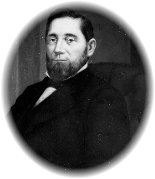
John Henry Kinkead: The Governor of Controversy
Introduction: John Henry Kinkead’s tenure as Nevada’s third governor was far from the stuff of political legend. Instead of being remembered for great strides in governance or progress, Kinkead’s time in office was marked by controversies that have clouded his legacy. With his outspoken anti-Chinese sentiments, support for taxing mining industries, advocacy for toll roads, and rumored involvement in shady dealings, Kinkead’s actions seem more in line with a man looking out for his own interests than for the good of Nevada. This exploration of Kinkead’s life reveals a man more focused on personal gain and maintaining influence than on the betterment of the state.
A Businessman with Political Ambitions: Born in 1826 in Smithfield, Pennsylvania, Kinkead’s early career was in business. He co-founded Livingston & Kinkead in Salt Lake City, Utah, a dry goods venture, before moving on to other business endeavors in California. Despite some ups and downs, Kinkead’s ability to navigate the rough-and-tumble business world of the 19th century set him on a path to influence. His entrepreneurial spirit, however, did not translate into a life of altruism. It seems Kinkead’s business success was marked by self-interest and opportunism, setting the stage for a political career rooted in similar motivations.
Entering Nevada Politics: A Shrewd Move or a Calculated Takeover? By the time Kinkead arrived in Nevada, the silver boom was in full swing. Taking advantage of the territory’s growing prosperity, he quickly gained favor and political clout. He served as the first Territorial Treasurer from 1862 to 1864 and was involved in Nevada's Constitutional Convention in 1864. His role in shaping the state's early governance set him up to transition into the political spotlight, but again, Kinkead’s political career seemed less about public service and more about self-advancement. In 1879, he was elected as Nevada’s governor, stepping into office at a time when the state was experiencing rapid economic growth, much of it driven by mining.
Governorship and Controversial Stances: As governor, Kinkead’s policies and actions became the subject of intense criticism. His vocal opposition to Chinese immigration was one of his most controversial stances. At a time when anti-Chinese sentiment was rampant, Kinkead added fuel to the fire, voicing concerns about the effects of Chinese labor on Nevada’s workforce. His support for restrictive laws aimed at curbing Chinese immigration reflected the racism of the era, and his rhetoric on the issue revealed a lack of progressive vision.
Kinkead’s support for higher taxes also stirred debate. While he argued that increased revenue was necessary for the state’s development, critics saw this as another way for him to cater to the wealthy mining interests, many of which had made him money. His relationship with these industries grew increasingly questionable, with allegations that he received kickbacks for his support, raising concerns about his ethics and priorities in office.
The governor’s advocacy for toll roads added another layer of controversy to his time in office. The toll roads were seen by some as a burden on the population, enriching private interests at the expense of everyday Nevadans. This further fueled the perception that Kinkead was less a public servant and more a political actor working to benefit a select few.
Governorship in Alaska: A Scandalous Departure: After his time in Nevada, Kinkead was appointed as the first Governor of Alaska by President Chester Arthur. However, his tenure in Alaska was also marked by controversy, including a public scandal involving the arrest of Presbyterian missionary Sheldon Jackson. Kinkead’s strained relationship with Jackson led to a national scandal, which, combined with his growing health issues, led to Kinkead’s resignation in 1885. His departure from Alaska marked the end of his political career, but not before his reputation had been irrevocably damaged by his actions and scandals.
Later Life and Legacy: After resigning from his post as governor, Kinkead returned to Carson City, Nevada, where he remained involved in the mining and mercantile industries. Despite his resignation from politics, Kinkead’s business dealings continued, further cementing the impression that his political career was largely motivated by self-interest rather than a desire to serve the people of Nevada. Kinkead died in 1904 and was buried in Carson City, but his controversial legacy lived on, marked by allegations of corruption, racism, and a lack of true commitment to Nevada’s development.
Conclusion: John Henry Kinkead’s time as Nevada’s governor will always be remembered with skepticism. His anti-Chinese rhetoric, ties to the mining industry, controversial tax policies, and push for toll roads all suggest a man more interested in consolidating power and personal wealth than in advancing the state’s interests. While he did play a role in Nevada’s early political landscape, his legacy is one of opportunism and self-serving policies rather than a dedication to public service. Kinkead’s governorship serves as a reminder that political figures, even in pivotal moments of a state’s history, are often motivated by their own interests—and that those motivations can shape their legacies for years to come.
.

Emma Lee Adams: The First Lady Whose Influence Outshone Her Husband's Legacy
Introduction: While many first ladies are remembered for their grace and support of their husbands' political careers, Emma Lee Adams—wife of Jewett William Adams, Nevada's fourth governor—crafted a legacy far larger than the title of "First Lady" could encompass. While her husband's time in office has been largely overshadowed by Emma’s own audacious political stance, it is her vehement opposition to women’s suffrage and her leadership within the anti-suffrage movement that marks her as one of the most intriguing—and controversial—figures in Nevada’s history. This biography examines Emma Lee Adams, a woman whose fierce convictions and ability to shape social discourse left an indelible mark on the state, for better or for worse.
Early Life and Marriage: Emma Lee Adams was born on November 7, 1851, in Philadelphia, Pennsylvania, although some records suggest she may have been born in New York. As with many women of her time, details of her early life remain murky, but what’s clear is that she came from a family of means. Emma’s formative years in Corsicana, Texas, likely shaped the social connections she would later utilize for political purposes. At the age of 26, Emma married Jewett William Adams, a man who was already a prominent figure in Nevada politics, having served as Lieutenant Governor before becoming Governor in 1903. Despite her husband’s political career, it was Emma who would become the more controversial figure in Nevada’s history, using her position as First Lady to advance her personal political agenda.
First Lady of Nevada: Charm, Influence, and Political Maneuvering: Emma Lee Adams embraced the role of Nevada's First Lady with undeniable elegance and a strategic grasp of power. Known for her social acumen, she cultivated a network of influential women across the state and beyond. Her charm and sophistication made her a highly popular figure in Carson City, but it was her political actions—particularly her anti-suffrage advocacy—that defined her legacy.
Though some might expect a First Lady to quietly support her husband’s policies, Emma proved to be a force unto herself. In the months leading up to the 1914 state referendum on women's suffrage, Emma Adams took center stage, not as a proponent of women’s rights, but as a passionate opponent. Recognizing the cultural moment, she leveraged her network of wealthy, politically connected women, many of whom were friends and allies from Jewett’s political career. Emma’s goal was clear: to keep women from gaining the right to vote.
Anti-Suffrage Leadership: As Nevada approached its suffrage referendum, Emma Lee Adams emerged as a leader of the anti-suffrage movement, a position she would embrace fully. Her organization, the Nevada Association of Women Opposed to Equal Suffrage, garnered widespread attention, especially in 1914, when it boasted 260 women members from Carson City alone. Emma’s own beliefs about suffrage were largely driven by a fear of social upheaval and her desire to maintain the status quo. She argued that granting women the vote would disrupt traditional gender roles and lead to political instability. Some even speculated that her opposition was rooted not only in political ideology but in a more personal need to preserve her own influence in a world that might shift if women were granted more power.
Her public advocacy was as fierce as it was calculated. Emma made impassioned speeches and wrote responses to suffrage editorials, framing the issue as one of taxation. She infamously argued that women, if granted the vote, should be exempt from taxes and obligations, a stance that was both absurd and hypocritical in the eyes of many. This marked her as a divisive figure: a woman using her privileged position to defend a system that systematically oppressed others.
Legacy of Controversy: Emma Lee Adams’s legacy is undeniably complex. While she is often remembered for her poise and social influence, it’s impossible to overlook her fierce anti-suffrage activism, which many view as a betrayal of the feminist cause. She spent years organizing and rallying women to fight against their own empowerment, an effort that delayed Nevada’s eventual approval of women’s suffrage until 1914. Her work made her a hero to some and a villain to others, and her role in shaping the state's suffrage debate cannot be understated.
Her fervent opposition to suffrage, and the social networks she mobilized in defense of her position, ensured that Emma Lee Adams became an integral—but polarizing—figure in the state's history. As one of the most visible anti-suffrage leaders in Nevada, she opposed the inevitable tide of history, refusing to recognize that social progress was unfolding before her eyes.
Later Life and Legacy Beyond Nevada: After her husband’s gubernatorial term ended, Emma moved with him to San Francisco in 1915, where she continued to exert influence in social and philanthropic circles. In her later years, she traveled extensively, visiting Europe, Egypt, and South America. While Jewett passed away in 1918, Emma lived on until March 20, 1941. She was buried in Colma, California, alongside her husband. Yet, despite her death more than two decades after his passing, Emma’s legacy remains far more contentious than her husband’s. She is remembered not as a First Lady who supported progress, but as an influential woman who actively worked to slow it down.
Conclusion: Emma Lee Adams’s legacy in Nevada history is as complicated as it is impactful. As First Lady, she wielded significant power and influence, but it was her staunch opposition to women’s suffrage that cemented her place in history. Emma used her social connections and rhetorical prowess to oppose a cause that would eventually empower millions of women. While her influence as a political figure was undeniable, her actions stand as a reminder that the fight for women’s rights was not won without opposition—even from women themselves. Emma’s life offers a fascinating lens through which we can examine the intersection of privilege, politics, and gender, and it leaves us to consider the extent to which we celebrate those who shape history, regardless of whether their actions were ultimately for the greater good.

Charles Stevenson: A Dynamic Leader for Nevada's Growth and Transformation
Introduction: Charles Clark Stevenson, the fifth Governor of Nevada, played a pivotal role in shaping the state's development during a critical period in its history. As a member of the Republican Party, Stevenson was instrumental in Nevada’s economic growth, particularly in the livestock and farming industries, and he made significant contributions to the state's education system. This essay explores his life, leadership, and the enduring impact of his work on Nevada's growth and transformation.
Early Life and Professional Ventures: Born on February 20, 1826, in Phelps, New York, Charles Stevenson received his education in the common schools of Canada and Michigan. In 1859, Stevenson moved west to Nevada, arriving in Ophir, which would later become Virginia City. There, he immersed himself in the booming mining industry, becoming involved in milling operations and agriculture. Stevenson's entrepreneurial spirit was evident when he became a part-owner of the Cooper and Stevenson quartz mine, one of the early mining ventures in the region. This early involvement in Nevada’s resource-based economy set the stage for Stevenson’s future role in shaping the state's growth.
Political Career and Public Service: Stevenson’s political career began with his election to the Nevada State Senate, where he represented Storey County for three terms. During this time, he gained a reputation for his dedication to public service and his ability to work across party lines. His service in the Senate laid the groundwork for his growing influence in state politics. He was also a delegate to the Republican National Convention in 1872 and 1884, showcasing his leadership in state and national politics.
Stevenson’s commitment to public service extended beyond the Senate. In 1875, he was appointed as a Regent of the University of Nevada, a position he held for an impressive 11 years. During his tenure, Stevenson worked to strengthen the university, advocating for the development of higher education in Nevada and ensuring that the state had access to a well-educated workforce for its growing industries.
Governorship and Contributions: In 1886, Charles Stevenson was elected as Governor of Nevada, taking office with a clear vision for the state's future. As governor, Stevenson championed policies that supported Nevada’s economic development, particularly its livestock and farming industries. Recognizing the importance of these sectors in sustaining Nevada’s economy, he worked to improve infrastructure, promote sustainable farming practices, and increase investment in agricultural initiatives.
Stevenson also focused on education, and one of his most significant contributions was his involvement in the establishment of the Stewart Indian School. This institution was designed to provide educational opportunities for Native American children, an effort that reflected Stevenson’s broader commitment to social progress and inclusion.
Perhaps one of Stevenson’s most enduring legacies was his work with the University of Nevada. While governor, Stevenson oversaw the reconstruction and enhancement of the university, helping to create an environment that fostered intellectual growth and innovation. His support for higher education was a critical investment in Nevada's future, ensuring that the state would have the educational infrastructure to meet the demands of an evolving economy.
Tragic Death and Legacy: Tragically, Charles Stevenson’s promising career was cut short when he succumbed to typhoid fever on September 21, 1890, while still in office. He became the first Nevada governor to die while in office, a loss that deeply affected the state and its citizens. Stevenson’s death marked the end of a visionary leadership era for Nevada, and his passing left a void in the state’s political and social landscape.
Despite his untimely death, Stevenson's legacy lived on through the policies and initiatives he championed. His contributions to Nevada’s education system, agricultural and livestock industries, and overall infrastructure helped set the state on a path of growth and prosperity. His work as a senator, regent, and governor solidified his place in Nevada's history as a dynamic leader who helped shape the state into what it would become in the years that followed.
Legacy and Remembrance: Today, Charles Stevenson’s contributions are honored and remembered. His efforts to promote education, economic growth, and public service continue to be a source of inspiration for those who follow in his footsteps. His final resting place at Mountain View Cemetery in Reno serves as a reminder of his dedication to Nevada’s future and the significant role he played in the state’s development.
Conclusion: Charles Stevenson, Nevada’s fifth governor, left an enduring legacy as a visionary leader committed to the growth and development of the state. His work in advancing education, supporting the agricultural and livestock industries, and improving the state’s infrastructure provided a solid foundation for Nevada’s future success. Though his life was tragically cut short, his influence is still felt today. Stevenson’s story serves as a testament to the power of leadership and vision in shaping the course of history, inspiring future generations of Nevadans to continue building upon the foundation he helped create.
 Francis Jardine "Frank" Bell: A Dedicated Servant of Nevada's Progress
Francis Jardine "Frank" Bell: A Dedicated Servant of Nevada's Progress
Introduction:
Francis Jardine Bell, the sixth Governor of Nevada, dedicated his life to public service and played a pivotal role in the state's development. Born in Toronto, Canada, Bell's journey took him from overseeing the construction of a telegraph line to serving as the acting governor of Nevada. This biography explores Bell's life, accomplishments, and enduring legacy as a committed public servant.
Early Life and Education:
Francis Jardine Bell was born on January 28, 1840, in Toronto, Upper Canada (now Ontario). He received his education in the common schools of his native country, fostering a strong foundation of knowledge and critical thinking. Notably, Bell had a distant familial connection to the renowned inventor Alexander Graham Bell, adding an intriguing aspect to his family lineage.
Arrival in Nevada and Telegraphic Contributions:
In 1858, Bell ventured to Nevada to supervise the construction of a transcontinental telegraph line spanning from Utah to California. He dedicated his efforts to this monumental project until 1860, leaving a lasting mark on Nevada's telecommunication infrastructure. Subsequently, Bell pursued a career as a telegraph operator, further solidifying his expertise and familiarity with the evolving communication technologies of the time.
Governorship and Public Service:
Bell's commitment to public service was evident throughout his career. In 1864, he played a pivotal role as one of the telegraph operators responsible for transmitting Nevada's Constitution to Washington D.C., showcasing his dedication to his adopted state.
In 1883, Bell assumed the position of warden at the Nevada State Prison, overseeing the institution for four years. His strong leadership and management skills earned him recognition and paved the way for further opportunities in public service. In 1889, he was appointed the eighth lieutenant governor by Charles C. Stevenson, and when Governor Stevenson signed a disability certificate on September 1, 1890, Bell assumed the role of acting governor. His tenure as acting governor made him Nevada's first foreign-born governor, leaving an indelible mark on the state's history.
During his time as acting governor, Bell faithfully executed the policies set forth by Governor Stevenson, ensuring continuity and stability for the state. Though he did not seek a full term, his dedication to public service continued in various roles, including serving as the warden of the Nevada State Prison from 1893 to 1895 and as a justice of the peace from 1905 to 1909. Bell's unwavering commitment to justice and public safety earned him respect and admiration from his constituents.
Legacy and Final Years:
Francis Jardine Bell's unwavering dedication to public service and his impact on Nevada's development remain an integral part of the state's history. Following his retirement from political office, he continued his involvement in the telephone and telegraph industry, contributing to the advancement of communication infrastructure.
Bell passed away on February 13, 1927, in his daughter's home in Oakland, California, at the age of 87. His contributions to the growth and progress of Nevada, from his involvement in telegraph construction to his service as acting governor, remain a testament to his commitment to public service. Francis Jardine Bell rests in eternal peace at Masonic Memorial Gardens in Reno, Nevada, leaving behind a legacy of dedicated service and tireless devotion to the betterment of his adopted state.
Conclusion:
Francis Jardine "Frank" Bell's journey from overseeing the construction of a telegraph line to serving as the acting governor of Nevada exemplifies his unwavering commitment to public service. His contributions to Nevada's telecommunication infrastructure, his diligent management of the Nevada State Prison, and his steadfast leadership as acting governor all played crucial roles in the state's development. Bell's legacy lives on, reminding us of the remarkable individuals who have shaped Nevada's history and inspiring future generations to serve their communities with dedication and integrity.
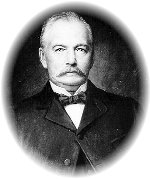 Roswell Colcord: A Lawyer Turned Governor, A Legacy of Expanding Government
Roswell Colcord: A Lawyer Turned Governor, A Legacy of Expanding Government
Introduction:
Roswell Keyes Colcord, the seventh Governor of Nevada, left an enduring mark on the state's political landscape. As a lawyer turned politician, Colcord's tenure was characterized by the growth of government institutions and initiatives. From the establishment of the State Board of Health to the authorization of the State Board of Equalization, Colcord's policies reflected the typical tendencies of politicians, expanding the reach and influence of government. This essay delves into the life and career of Roswell Colcord, exploring his contributions as well as the criticisms leveled at his governance.
Early Life and Career:
Roswell Colcord was born on April 25, 1839, in Searsport, Maine. His education consisted of attending public schools, where he pursued mechanical engineering. Subsequently, he found employment in a shipyard as a carpenter, honing his skills in craftsmanship and industry. However, Colcord's ambitions led him westward to California in 1856, seeking new opportunities on the horizon.
Law and Engineering: A Dual Pursuit:
Upon arriving in Nevada, Colcord settled in Aurora in 1860 before eventually making his way to Virginia City in 1863. It was during this period that he embarked on a multifaceted career, excelling in both law and engineering. Establishing a successful law practice, he emerged as one of the state's leading attorneys, handling a diverse range of cases. Simultaneously, Colcord contributed to infrastructure development, involving himself in bridge and mill construction projects. This unique combination of legal expertise and engineering acumen would shape his future political endeavors.
Governorship and Expanding Government:
Colcord's entry into politics culminated in his election as the Governor of Nevada in 1890. While hailed by his supporters, his tenure soon drew criticism for his inclination towards expanding the role of government. Colcord's actions reflected a familiar pattern among politicians, as he signed legislation that created the State Board of Health and authorized the State Board of Equalization. These institutions, though well-intentioned, contributed to the growth of bureaucracy and government intervention in various aspects of public life.
Colcord's tenure also witnessed the signing of the state's first admissions day bill, a milestone in Nevada's history. Additionally, he championed the cause of Women's Suffrage, becoming the first Nevada governor to support this crucial movement. While these accomplishments are noteworthy, they were often overshadowed by the concerns surrounding the expanding government apparatus under Colcord's leadership.
Post-Gubernatorial Career and Legacy:
Following his term as governor, Colcord assumed the role of Superintendent of the United States Mint's Carson City branch. From 1898 to 1911, he oversaw the operations of the Mint, which, at the time, served as a shipping point for bullion rather than producing currency. While his tenure at the Mint was relatively uneventful, it further solidified his association with government institutions.
Roswell Colcord passed away on October 30, 1939, at the age of 100 in Carson City, Nevada, leaving behind a mixed legacy. Despite his centennial milestone, his governance was marred by critiques of government expansion and bureaucracy. Colcord's interment at Lone Mountain Cemetery in Carson City serves as a reminder of the controversies that surrounded his tenure.
Conclusion:
Roswell Colcord's journey from lawyer to governor reflects the typical path of politicians. While his commitment to public service and support for Women's Suffrage are commendable, his governance was marked by the expansion of government institutions. The establishment of the State Board of Health and the authorization of the State Board of Equalization contributed to a growing bureaucracy, raising concerns among critics. Colcord's legacy serves as a reminder of the perpetual tension between governmental expansion and limited intervention, a challenge faced by leaders throughout history.
 John Edward Jones: A Visionary for Nevada's Economic Independence
John Edward Jones: A Visionary for Nevada's Economic Independence
Introduction: John Edward Jones, the eighth Governor of Nevada, was a visionary leader who championed policies aligned with the Silver Party's platform of bimetallism and free silver. Jones recognized the vast potential of Nevada's abundant gold and silver resources and sought to harness this wealth by advocating for the state to mint its own coins. Additionally, he played a significant role in strengthening Nevada's defense capabilities by establishing the Nevada Militia. While his untimely death prevented him from fully addressing the monetary issues, his administration's achievements in agriculture and establishing the state's first public library should also be acknowledged. Nevertheless, the whispers of alleged interference by international bankers add an intriguing layer to Jones's story.
Early Life and Career: John Edward Jones was born in Merthyr Tydfil, Wales, and immigrated to Iowa with his family in 1856. Educated in the common schools of Wales, he later graduated from Iowa State University in 1865. Jones's diverse career included stints as a miner, farmer, and teacher. In 1867, he contributed to the construction of the Union Pacific Railroad before finally settling in Eureka, Nevada, in 1869. It was in Nevada that Jones's remarkable journey as a public servant and political leader took shape.
The Nevada Militia and Defense Preparedness: Jones's commitment to safeguarding Nevada's interests led him to play a pivotal role in the organization of the Nevada Militia in 1876, where he served as a Major. Recognizing the importance of a well-prepared defense force, he contributed to enhancing the state's military capabilities. The Nevada Militia stood as a testament to Jones's dedication to ensuring the security and protection of the state's resources and its residents.
Advocacy for Coining Nevada's Own Money: Jones's most notable vision lay in his passionate advocacy for Nevada to coin its own money. With Nevada's vast reserves of gold and silver, he believed that the state could assert its economic independence and become a global force by minting its own currency. Jones's support for bimetallism and free silver aligned with the ideals of the Silver Party, which sought to expand the money supply through the unlimited coinage of silver. His fervor for this cause reflected his understanding of Nevada's unique position and the potential it held within the nation's economic landscape.
Agriculture and Public Library Establishment: During his tenure as Governor, Jones pursued policies that resulted in the growth of government institutions. Notably, his administration supported irrigation programs that facilitated agricultural development and ensured the efficient use of water resources. Furthermore, Jones's administration established the first public library in Reno, Nevada, laying the foundation for the dissemination of knowledge and the promotion of intellectual growth in the state.
The Controversial Whispers: Interestingly, some suggest that Jones faced opposition from international bankers who purportedly sought to hinder his efforts. While the veracity of these claims remains uncertain, they add an intriguing dimension to Jones's story, fueling speculation about the extent of external interference in Nevada's economic and political landscape.
Conclusion: John Edward Jones, a visionary leader and member of the Silver Party, left an indelible mark on Nevada's political history. His staunch advocacy for coining Nevada's own money and his establishment of the Nevada Militia showcased his commitment to the state's economic independence and security. Though his untimely demise prevented him from fully addressing the monetary issues, his tenure witnessed agricultural successes and the establishment of the state's first public library. Whether the whispers of interference by international bankers hold any truth remains a mystery, but they serve as a testament to the intrigue surrounding Jones's legacy. As Nevada continues to evolve, Jones's contributions serve as a reminder of the state's rich history and the individuals who shaped its path towards prosperity.
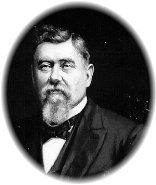 Reinhold Sadler: A Champion for Agricultural Development and Stewardship
Reinhold Sadler: A Champion for Agricultural Development and Stewardship
Introduction: Reinhold Sadler, the ninth Governor of Nevada, followed in the footsteps of his predecessor, John Edward Jones, by focusing on improving the agricultural situation in the state. As a member of the Silver Party, Sadler continued to prioritize the well-being of Nevada's farmers and rural communities. Although he did not actively pursue monetary policy changes like his predecessor, Sadler's administration left a lasting impact through initiatives that supported agricultural development and established institutions promoting the welfare of Nevada's citizens.
Early Life and Career: Born on January 10, 1848, in Czarnikau, Prussia (now Czarnków, Poland), Reinhold Sadler immigrated to the United States and settled in Virginia City before eventually making Eureka, Nevada, his home. With limited formal education, Sadler embraced a life of hard work and diverse occupations. He worked as a miner, miller, and merchant, gaining firsthand experience in the challenges faced by Nevada's laborers and entrepreneurs.
Supporting Agricultural Development: Sadler's administration recognized the significance of agriculture in Nevada's economy and the livelihoods of its residents. Building upon the groundwork laid by his predecessors, he continued to prioritize agricultural development. The establishment of the Farmer's Institute during his tenure provided valuable resources, knowledge, and training to farmers, promoting modern farming techniques and increasing agricultural productivity. Sadler's commitment to improving agricultural practices and fostering rural communities laid the foundation for a thriving agricultural sector in Nevada.
Institutional Development and Stewardship: Beyond his focus on agriculture, Sadler's administration sought to enhance the overall well-being of Nevada's citizens. One of his notable achievements was the establishment of the State Board of Assessors, which aimed to ensure fair taxation and equitable distribution of resources. By implementing effective assessment practices, Sadler's administration aimed to promote transparency and accountability in fiscal matters.
Legacy: Reinhold Sadler's legacy as Governor of Nevada is defined by his dedication to the betterment of the state's agricultural sector and his commitment to responsible governance. Although he did not actively pursue monetary policy changes like his predecessor, Sadler's focus on agricultural development contributed to the state's economic growth and prosperity. By establishing the Farmer's Institute and supporting initiatives that empowered farmers, he created a fertile ground for agricultural innovation and success.
Moreover, Sadler's commitment to fair taxation and equitable resource allocation through the State Board of Assessors demonstrated his dedication to good governance and public welfare. His efforts laid the groundwork for a more transparent and efficient system that benefited all Nevadans.
While Sadler's time as Governor was marked by his dedication to specific areas of focus, his impact extended beyond his term. The institutional developments he initiated and his steadfast support for agricultural development continue to shape Nevada's landscape and economy. His commitment to responsible governance and the well-being of Nevada's citizens remains an enduring legacy that inspires future leaders to prioritize the needs of their communities.
Conclusion: Reinhold Sadler's tenure as Governor of Nevada upheld the legacy of his predecessor, John Edward Jones, by prioritizing agricultural development and responsible governance. His administration's initiatives supported farmers, improved agricultural practices, and established institutions for fair taxation. Through his vision and dedication, Sadler left an indelible mark on Nevada's agricultural landscape and the overall well-being of its citizens. His legacy serves as a reminder of the transformative power of leadership, encouraging future generations to foster economic growth, stewardship, and the betterment of their communities.
 John Sparks: A Cattleman Turned Politician
John Sparks: A Cattleman Turned Politician
Introduction: John Sparks, the tenth Governor of Nevada, left an indelible mark on the state's history through his remarkable journey from being a successful cattleman to becoming a prominent political figure. Nicknamed "Honest John," Sparks was a member of the Silver-Democratic Party and played a crucial role in shaping Nevada's political landscape during a time of transition. His rise to power mirrored the decline of the mining industry and the ascent of the ranching sector, exemplifying the changing dynamics of Nevada's economy. This essay delves into the life and accomplishments of John Sparks, highlighting his contributions to both the cattle industry and the political realm.
Early Life and Cattleman Career: Born on August 30, 1843, in Winston County, Mississippi, John Sparks hailed from a family of pioneers who ventured westward in search of new lands and opportunities. His family's journey led them to Texas, where they established themselves as cattle ranchers. Embracing the life of a cowboy, Sparks honed his skills and gained extensive experience in ranching and cattle drives. His proficiency as a cowboy soon propelled him into the ranks of the renowned Texas Rangers, where he played a vital role in protecting settlers from Comanche raids.
In pursuit of new opportunities, Sparks set his sights on the vast rangelands of the West. Joining forces with fellow Texan John Tinnin, he ventured into the Thousand Springs Valley in Nevada, where they purchased the H-D Ranch. Subsequently, Sparks-Tinnin acquired additional ranches, expanding their cattle operations and establishing control over vast stretches of public land. By employing shrewd tactics, such as strategically acquiring water rights and filing homestead claims, they amassed a significant portion of Nevada's land, solidifying their prominence in the ranching industry.
Political Career and Legacy: While Sparks excelled as a cattleman, his ambition and leadership skills led him to embark on a new chapter of his life in the realm of politics. His experience in the cattle industry provided him with insights into the challenges faced by ranchers and farmers, motivating him to advocate for their interests.
In 1902, Sparks was elected Governor of Nevada, beginning a political career that would span two terms. During his tenure, Sparks focused on implementing policies that would benefit the state's citizens. He prioritized agricultural development, recognizing the importance of sustaining the ranching and farming sectors. The establishment of a state railroad commission, the organization of the Nevada State Police, and the passage of an eight-hour workday bill for miners were among the notable achievements of his administration.
In recognition of his contributions, the town of Harriman in Washoe County was renamed Sparks in 1904. This act not only honored his leadership but also marked his lasting impact on the state's history and development.
Legacy and Memorium: Despite his political accomplishments, Sparks faced financial difficulties toward the end of his life. His ventures, including the Alamo Ranch, faced financial strain, leading to the sale of his assets to settle his debts. However, the legacy of Sparks's entrepreneurial spirit and political influence continued to shape Nevada's future.
The Alamo Ranchhouse, a significant part of Sparks's former Alamo Ranch, still stands today as a testament to his enduring legacy. Listed on the U.S. National Register of Historic Places, it serves as a reminder of Sparks's pivotal role in the development of Nevada's ranching industry and his contributions to the state's cultural heritage.
Conclusion: John Sparks's life epitomized the spirit of the American West, from his early days as a cowboy to his rise as a prominent politician. As a successful cattleman, he navigated the changing economic landscape of Nevada, contributing to the rise of the ranching industry. His subsequent foray into politics showcased his commitment to representing the interests of ranchers, farmers, and the broader citizenry. Through his governance and dedication to public service, Sparks left an enduring legacy in Nevada's history, making him a pivotal figure in the state's transition from mining to ranching prominence.
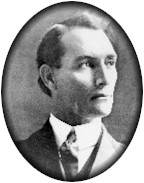 Denver Sylvester Dickerson: A Life of Public Service
Denver Sylvester Dickerson: A Life of Public Service
Introduction: Denver Sylvester Dickerson, the eleventh Governor of Nevada, dedicated his life to public service, leaving a lasting impact on the state's political and correctional systems. As a member of the Silver-Democratic coalition party, Dickerson held various positions, including Lieutenant Governor and Governor. His commitment to reform extended to his role as Superintendent of Federal Prisons, where he oversaw significant changes. This essay explores the life and achievements of Denver S. Dickerson, highlighting his contributions to Nevada's political landscape and his lasting legacy in the field of corrections.
Early Life and Political Career: Denver Dickerson was born on January 24, 1872, in Millville, California, to Harvey Franklin and Catherine Melinda Dickerson. His father, a mining pioneer, instilled in him a spirit of exploration and entrepreneurship. After receiving a public school education and private tutoring, Dickerson embarked on a career in mining, working in Idaho, Montana, and Nevada.
In 1902, Dickerson's political journey began when he was elected as the clerk of White Pine County, Nevada, later assuming the position of county recorder. In 1904, he married Una Reilly of Cherry Creek, Nevada, and expanded his involvement in journalism by acquiring the White Pine News. Alongside his career in publishing, Dickerson became increasingly engaged in state politics, eventually running for Lieutenant Governor in 1906.
Governorship and Reform Efforts: Dickerson's ascent in politics continued when he assumed the role of Lieutenant Governor in 1907. Following the unexpected death of Governor John Sparks in 1908, Dickerson became the acting governor. His leadership and dedication to public service propelled him to win the gubernatorial election later that year.
During his governorship, Dickerson championed reforms in the state's prison system. Recognizing the need for change, he worked diligently to restructure state mental hospitals and implement transformative measures within the prison facilities. His efforts aimed to improve conditions and promote rehabilitation for inmates. Additionally, he successfully advocated for the reorganization of the state Railroad Commission, emphasizing the importance of efficient transportation networks.
The "Fight of the Century": One of Dickerson's notable decisions as governor was his support for the historic boxing match between James J. Jeffries and Jack Johnson in 1910. Despite intense pressure to cancel the event due to racial tensions, Dickerson believed in providing a fair opportunity for Johnson to showcase his boxing skills. By allowing the match to proceed in Reno, Nevada, Dickerson demonstrated his commitment to equality and diversity.
Later Career and Legacy: Following his tenure as governor, Dickerson assumed the role of Superintendent of the Nevada State Police. In 1913, he became the Warden of Nevada State Prison, where he faced the challenging task of overseeing executions. His dedication to correctional reform continued when he later served as the Superintendent of Federal Prisons, responsible for implementing changes in the federal correctional system.
Denver S. Dickerson's legacy extends beyond his political career. His contributions to public service were carried on by his children, several of whom pursued careers in Nevada state politics and the legal profession. His sons Harvey, Denver, and George followed in their father's footsteps, making their own impactful contributions to the state.
Conclusion: Denver Sylvester Dickerson dedicated his life to serving the people of Nevada through various roles in politics and corrections. As Governor, he implemented reforms that improved the state's prison system and supported essential changes in transportation and mental healthcare. His unwavering commitment to equality and fairness was exemplified by his decision to host the historic boxing match between Jeffries and Johnson. Throughout his career, Dickerson's legacy of public service inspired his children and future generations to make their mark in Nevada's political and legal arenas.
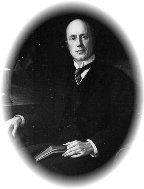 Tasker Lowndes Oddie: A Trailblazer in Nevada Politics and Public Service
Tasker Lowndes Oddie: A Trailblazer in Nevada Politics and Public Service
Introduction: Tasker Lowndes Oddie, a prominent lawyer and politician, left an indelible mark on Nevada's political landscape. As the 12th Governor of Nevada and a United States Senator, Oddie's contributions ranged from pioneering motor vehicle legislation to advocating for mining safety and women's suffrage. His legacy extends beyond politics, with various landmarks bearing his name. This essay delves into the life and achievements of Tasker L. Oddie, highlighting his role in shaping Nevada's history and his enduring impact on the state.
Early Life and Career: Tasker Lowndes Oddie was born on October 20, 1870, in Brooklyn, New York. He pursued a legal education at New York University Law School, graduating with an LL.B. in 1895. Oddie initially practiced law in New York, but his journey took a significant turn in 1898 when he relocated to Nevada to become the attorney and business agent for the Stokes family. He swiftly embraced his new home and joined the Nevada Bar in the same year.
Rise in Nevada Politics: Oddie's entry into Nevada politics coincided with the 1900 silver boom in Tonopah, where he made his fortune as the manager of the Tonopah Mining Company. He served as the Nye County District Attorney from 1900 to 1902, demonstrating his commitment to public service and the law. In 1903, Oddie embarked on his legislative career by becoming a member of the Nevada State Senate, a position he held until 1906.
Governorship and Legislative Achievements: Tasker L. Oddie assumed the role of Governor of Nevada in 1911, serving until 1915. Notably, Oddie's tenure witnessed significant milestones in Nevada's history. His leadership ushered in progressive reforms, including granting women the right to vote and endorsing mining safety legislation. One of Oddie's lasting legacies was the sanctioning of a state motor vehicle law, marking the birth of the Nevada Department of Motor Vehicles. This pivotal legislation laid the foundation for the state's motor vehicle regulations and infrastructure, shaping Nevada's transportation landscape for years to come. Oddie's commitment to improving worker welfare was evident in his endorsement of workmen's compensation benefits, underscoring his dedication to social progress.
Later Political Career and Legacy: Following his governorship, Oddie transitioned to the national stage and served as a United States Senator from 1921 to 1933. His tenure in the Senate was marked by his commitment to public service and advocating for Nevada's interests. Oddie's legacy also includes his involvement in the Republican Party as a delegate to multiple Republican National Conventions, representing Nevada's voice on key policy matters.
Beyond politics, Tasker L. Oddie was a member of various secret societies, including the Freemasons, Knights Templar, Shriners, and Elks. His involvement in these organizations reflected his commitment to community engagement and service.
Tasker L. Oddie's contributions to Nevada's growth and development were recognized through the naming of significant landmarks in his honor. Oddie Boulevard, located in Reno and Sparks, stands as a testament to his enduring legacy. Furthermore, Mount Oddie near Tonopah serves as a reminder of his significant role in Nevada's mining history.
Conclusion: Tasker Lowndes Oddie's life was dedicated to public service, leaving an indelible impact on Nevada's political landscape. From his pioneering efforts in establishing motor vehicle legislation to his advocacy for mining safety and women's suffrage, Oddie's achievements shaped Nevada's governance and society. His enduring legacy is not only found in political landmarks, such as Oddie Boulevard and Mount Oddie, but also in the hearts and minds of those who recognize his contributions to Nevada's progress. Tasker L. Oddie's commitment to public service and his lasting impact on the state will be remembered and celebrated for generations to come.
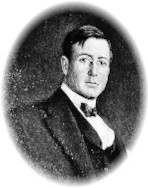 Emmet Derby Boyle: A Dedicated Engineer and Statesman of Nevada
Emmet Derby Boyle: A Dedicated Engineer and Statesman of Nevada
Introduction: Emmet Derby Boyle, an esteemed engineer and politician, made significant contributions to the state of Nevada as its 13th Governor. Born and raised in the heart of Nevada, Boyle's deep connection to the state and his engineering expertise influenced his leadership and decision-making during his tenure. This essay delves into the life and accomplishments of Emmet D. Boyle, highlighting his role in restructuring the state's tax system, advocating for education and labor reforms, and his dedication to public service.
Early Life and Engineering Career: Emmet Derby Boyle was born on July 26, 1879, in Gold Hill, Nevada, making him the first governor of Nevada to be born in the state. He received his education at the University of Nevada, graduating in 1889. Boyle's passion for engineering led him to pursue a master's degree in engineering in 1903, establishing a successful career in the field. As a mining engineer, he acquired invaluable knowledge and experience that would later shape his political endeavors.
Public Service and Political Career: Boyle's commitment to public service was evident throughout his career. He served as the Nevada State Engineer from 1910 to 1912, where he demonstrated his proficiency in managing critical infrastructure projects. In 1913 and 1914, he became a member of the Nevada State Tax Commission, showcasing his understanding of financial matters and taxation.
In 1915, Boyle embarked on a new chapter in his public service journey by running for the office of Governor of Nevada. Running as a Democrat, he successfully secured the position, becoming the first Nevada-born governor to hold the office. Boyle's term as governor spanned from 1915 to 1923, during which he implemented a series of impactful reforms that shaped the state's governance and society.
Governorship and Accomplishments: Emmet D. Boyle's tenure as governor was marked by numerous notable achievements. Recognizing the importance of a fair and efficient tax system, he spearheaded the restructuring of Nevada's tax system, ensuring a more equitable distribution of financial resources. His dedication to education and the welfare of teachers was evident in his efforts to improve teacher retirement benefits, acknowledging the crucial role educators played in shaping the state's future.
Boyle's commitment to labor rights and worker protection was evident in his establishment of the position of state labor commissioner, which aimed to safeguard the rights and interests of Nevada's workforce. His advocacy for worker welfare extended to advancing workmen compensation benefits, ensuring that workers received fair and just compensation in the event of work-related injuries or accidents.
Furthermore, Boyle played a prominent role in shaping Nevada's transportation infrastructure by establishing the state highway department. This critical development provided the foundation for improved connectivity and enhanced transportation networks throughout the state, benefitting both residents and businesses.
Aside from his policy achievements, Governor Boyle gained recognition for his opposition to boxing. In 1918, he took a stand against a boxing match involving Fred Fulton and Jess Willard, reflecting his strong convictions regarding the sport.
Later Years and Legacy: Following his tenure as governor, Boyle continued to contribute to the state of Nevada. He assumed the role of publisher of the Nevada State Journal, furthering his dedication to public service through journalism and providing a platform for the dissemination of news and information.
Tragically, Emmet Derby Boyle's life was cut short when he passed away on January 3, 1926, in Reno, Nevada, at the age of 46. He was laid to rest at the Masonic Memorial Gardens in Reno, leaving behind a legacy of dedicated public service and engineering expertise.
Conclusion: Emmet Derby Boyle's journey from a Nevada-born engineer to the state's 13th Governor exemplified his commitment to public service and the betterment of his beloved state. His accomplishments in restructuring the tax system, advancing education and labor reforms, and his stand against boxing showcased his dedication to fairness, progress, and the well-being of Nevada's residents. Boyle's legacy lives on in the lasting impact of his policies and his unwavering commitment to public service, forever cementing him as a notable figure in Nevada's history.
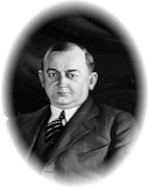 James Graves Scrugham: A Visionary Leader and Champion of Education
James Graves Scrugham: A Visionary Leader and Champion of Education
Introduction: James Graves Scrugham, a dedicated educator and forward-thinking politician, played a pivotal role in shaping the educational landscape of Nevada. As the 14th Governor of Nevada, Scrugham led the state through a period of significant transformation, focusing on improving education, promoting infrastructure development, and advocating for the welfare of its citizens. This essay explores the life and achievements of James G. Scrugham, highlighting his contributions to education, his tenure as governor, and his lasting impact on Nevada's progress.
Early Life and Academic Pursuits: Born on January 19, 1880, in Lexington, Mississippi, James G. Scrugham displayed a keen interest in academia from an early age. After completing his primary education, he enrolled at the University of Mississippi, where he excelled in his studies. Scrugham's thirst for knowledge and his passion for teaching led him to pursue a career in education.
Educational Career and Leadership: Scrugham's dedication to education propelled him to various teaching positions and leadership roles. He served as a professor of physics at the University of Chicago and later at the University of Nevada. His expertise in the field of physics earned him recognition and respect within academic circles.
In 1913, Scrugham assumed the presidency of the University of Nevada, where he undertook significant initiatives to elevate the institution's standing and improve the quality of education. Under his leadership, the university witnessed notable advancements, including the establishment of new academic programs, expansion of campus facilities, and enhanced faculty development.
Governorship and Accomplishments: James G. Scrugham's exceptional leadership qualities and his commitment to progress led him to the office of Governor of Nevada in 1923. During his tenure as the 14th Governor, Scrugham implemented a wide range of transformative policies and initiatives, leaving an indelible mark on the state's development.
Recognizing the critical role of education in shaping Nevada's future, Scrugham prioritized the expansion and improvement of the state's educational system. He championed efforts to increase funding for schools, enhance teacher training programs, and establish vocational and technical education opportunities. Scrugham's unwavering commitment to education paved the way for greater access to quality education for all Nevadans, ensuring the state's future prosperity.
Additionally, Scrugham's leadership extended beyond education. He spearheaded infrastructure development projects, focusing on improving transportation networks and expanding access to electricity. His dedication to modernizing Nevada's infrastructure laid the foundation for economic growth and improved living standards for its residents.
Legacy and Later Years: James G. Scrugham's enduring legacy is reflected in his contributions to education and infrastructure development. The impact of his policies and initiatives continues to shape Nevada's educational institutions and infrastructure networks to this day.
Following his gubernatorial term, Scrugham embarked on a career in public service at the federal level. He served as a U.S. Senator from Nevada, working tirelessly to address issues related to land and natural resources. His tenure in the Senate further solidified his commitment to the well-being of Nevada and its citizens.
James G. Scrugham's dedication to education and his visionary leadership earned him numerous accolades and recognition throughout his lifetime. His contributions to academia, public service, and infrastructure development have left an indelible mark on the state of Nevada, ensuring a brighter future for generations to come.
Conclusion: James Graves Scrugham's passion for education and his visionary leadership transformed Nevada's educational landscape and laid the groundwork for infrastructure development. Through his role as Governor, Scrugham made significant strides in improving education, expanding access to quality schooling, and modernizing infrastructure networks. His legacy continues to inspire and shape Nevada's progress, reminding us of the profound impact that dedicated leaders can have on the advancement of society. James G. Scrugham will forever be remembered as a visionary leader and champion of education in the Silver State.
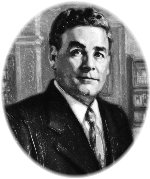 Fred B. Balzar: A Steward of Progress and Unity
Fred B. Balzar: A Steward of Progress and Unity
Introduction: Fred B. Balzar, a respected statesman and advocate for progress, played a crucial role in Nevada's history as the 17th Governor of the state. With a commitment to economic development, responsible governance, and fostering unity, Balzar left an indelible mark on Nevada's growth. This essay explores the life and achievements of Fred B. Balzar, highlighting his tenure as governor, his contributions to Nevada's economy, and his lasting legacy as a unifying figure.
Early Life and Political Aspirations: Born on June 15, 1880, in the town of Tuscarora, Nevada, Fred B. Balzar grew up immersed in the rugged landscapes and close-knit communities that defined the state. Raised in a mining family, Balzar developed a deep appreciation for the economic potential and challenges faced by Nevada's resource-dependent industries. These formative experiences fueled his desire to contribute to the state's progress through public service.
Governorship and Economic Development: Fred B. Balzar's commitment to economic development became a central focus of his tenure as governor, which began in 1923. Recognizing the need to diversify Nevada's economy beyond mining, Balzar pursued policies aimed at attracting new industries and fostering business growth. He successfully navigated the state through the turbulent years following the Great Depression, promoting stability and innovation.
Balzar's leadership led to the establishment of the Nevada Tax Commission, which implemented fair taxation policies to support essential public services and encourage economic expansion. Additionally, he worked to create a favorable business environment by reducing bureaucratic hurdles and implementing regulations that safeguarded workers' rights while fostering entrepreneurship.
Balzar's unwavering commitment to economic progress and stability laid the foundation for Nevada's transformation into a more diversified and resilient economy, paving the way for the state's future success.
Promoter of Unity and Social Progress: Fred B. Balzar believed in the power of unity and understood that a cohesive society was vital to Nevada's growth and prosperity. He promoted inclusivity and championed efforts to bridge social divisions. Balzar's belief in the inherent value of every individual fostered an environment of respect and understanding, strengthening Nevada's social fabric.
During his governorship, Balzar was instrumental in passing laws that advanced social progress and improved the lives of Nevadans. He supported the creation of the Nevada State Board of Health, which prioritized public health and welfare. Balzar also worked to improve educational opportunities, recognizing the importance of a well-educated populace in driving societal advancement.
Balzar's leadership reflected his dedication to creating a unified Nevada, where individuals from all walks of life could prosper and contribute to the state's collective success.
Legacy and Lasting Impact: Fred B. Balzar's legacy as a steward of progress and unity endures to this day. His efforts in diversifying Nevada's economy and promoting responsible governance laid the groundwork for the state's future prosperity. Balzar's commitment to social progress and fostering a sense of unity set a precedent for future leaders to follow.
In recognition of his contributions, Balzar is remembered as a key figure in Nevada's history. His legacy lives on in the policies he implemented, the economic stability he fostered, and the spirit of unity he promoted. The impact of his leadership continues to shape Nevada's trajectory, guiding the state towards greater prosperity, inclusivity, and social progress.
Conclusion: Fred B. Balzar's tenure as the 17th Governor of Nevada epitomized his commitment to economic development, responsible governance, and fostering unity. His dedication to diversifying the state's economy, promoting social progress, and nurturing a sense of unity left an indelible mark on Nevada's history. Fred B. Balzar's enduring legacy serves as a testament to his vision, leadership, and unwavering commitment to advancing Nevada's interests. He will always be remembered as a steward of progress and unity, whose contributions continue to shape the Silver State's future.
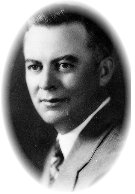 Morley Isaac Griswold: A Trailblazer in Public Service and Civic Engagement
Morley Isaac Griswold: A Trailblazer in Public Service and Civic Engagement
Introduction: Morley Isaac Griswold, an esteemed figure in Nevada's political landscape, dedicated his life to public service and civic engagement. As a pioneering leader and advocate for social progress, Griswold made significant contributions to Nevada's development during the early 20th century. This essay delves into the life, achievements, and lasting legacy of Morley Isaac Griswold, shedding light on his political career, commitment to education, and his role in shaping Nevada's future.
Early Life and Education: Morley Isaac Griswold was born on November 4, 1854, in New York. With a strong thirst for knowledge, he pursued higher education, attending Wesleyan University in Middletown, Connecticut. Griswold's passion for learning laid the foundation for his future endeavors and instilled in him a lifelong dedication to education as a catalyst for progress.
Political Career and Advocacy: Griswold's political career commenced when he moved to Nevada in the late 1870s. He served as the Superintendent of the Storey County Schools and later as the Superintendent of Public Instruction for the state. During his tenure, Griswold prioritized the improvement of Nevada's educational system, advocating for increased funding, teacher training programs, and the expansion of educational opportunities for all residents.
Griswold's commitment to education extended beyond his role as Superintendent. He actively supported legislation that aimed to enhance the quality of education in Nevada, including measures to establish new schools, improve curriculum standards, and promote vocational training. His tireless efforts to advance educational opportunities set a precedent for future leaders, making him a champion of educational reform in Nevada.
Leadership and Civic Engagement: Beyond his contributions to education, Morley Isaac Griswold was deeply involved in civic and community organizations. He believed in the importance of active participation and community engagement as pillars of a thriving society. Griswold served as President of the Nevada Historical Society, contributing to the preservation and celebration of Nevada's rich history and heritage.
Griswold's leadership extended to the political arena as well. He served as a member of the Nevada State Senate, representing Storey County. During his time in the Senate, Griswold continued his advocacy for education and championed legislative initiatives focused on the welfare of Nevada's citizens. His leadership and commitment to public service exemplified the ideals of democracy and inspired others to engage in the political process.
Legacy and Lasting Impact: Morley Isaac Griswold's legacy lives on through his transformative contributions to education and civic engagement in Nevada. His dedication to improving educational opportunities for all Nevadans laid the groundwork for a more prosperous and enlightened society. Griswold's advocacy for educational reform and his leadership in civic organizations continue to inspire future generations of leaders, educators, and community activists.
Griswold's enduring impact on Nevada's educational system is exemplified by the continued pursuit of excellence in education throughout the state. His commitment to fostering an informed and engaged citizenry shaped Nevada's civic fabric, promoting an active and participatory democracy. Griswold's legacy serves as a reminder of the power of education and civic engagement in driving positive change and progress.
Conclusion: Morley Isaac Griswold's unwavering dedication to education, leadership in civic organizations, and active involvement in politics made him a trailblazer in Nevada's history. His legacy as an advocate for social progress and civic engagement remains an inspiration to this day. Griswold's contributions to education and his commitment to fostering an engaged citizenry have left an indelible mark on Nevada's development. As a visionary leader and champion of public service, Morley Isaac Griswold will forever be remembered as a catalyst for positive change and progress in Nevada.
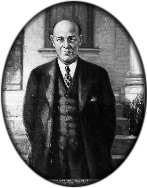 Richard Kirman Sr.: A Visionary Leader and Advocate for Progress
Richard Kirman Sr.: A Visionary Leader and Advocate for Progress
Introduction: Richard Kirman Sr., a prominent figure in Nevada's history, was a visionary leader and advocate for progress. Born on [date], Kirman dedicated his life to public service and made significant contributions to Nevada's development during the [time period]. This essay delves into the life, achievements, and lasting legacy of Richard Kirman Sr., shedding light on his political career, commitment to community development, and his role in shaping Nevada's future.
Early Life and Education: Richard Kirman Sr. was born on [date] in [place]. From a young age, he displayed a keen interest in public affairs and community involvement. Kirman's passion for learning and desire to make a positive impact on society led him to pursue higher education. He attended [name of university/college] where he studied [field of study] and honed his leadership skills.
Political Career and Advocacy: Richard Kirman Sr. embarked on his political career in [year]. He served in various government positions, including [positions held]. As a dedicated public servant, Kirman worked tirelessly to address the needs of his constituents and champion their interests at the local, state, and national levels.
Throughout his career, Kirman advocated for a range of issues, including [list specific issues]. He firmly believed in the power of government to enact positive change and improve the lives of the people. Kirman's commitment to public service and his ability to bridge political divides earned him respect and admiration from colleagues and constituents alike.
Community Development and Philanthropy: Beyond his political career, Richard Kirman Sr. was deeply committed to community development and philanthropy. He understood the importance of investing in the growth and prosperity of the communities he served. Kirman played a pivotal role in initiatives that aimed to enhance infrastructure, promote economic development, and improve the quality of life for residents.
Kirman's philanthropic endeavors extended to various sectors, including education, healthcare, and social services. He believed in the power of giving back and used his influence and resources to support organizations and causes that aligned with his vision of a thriving and inclusive community. Kirman's generosity and dedication to uplifting others left a lasting impact on the lives of countless individuals.
Legacy and Lasting Impact: Richard Kirman Sr.'s legacy lives on through his transformative contributions to Nevada's development and his unwavering commitment to public service. His visionary leadership and ability to bring about positive change continue to inspire current and future leaders in Nevada.
Kirman's impact on community development is evident in the lasting improvements to infrastructure, economic opportunities, and quality of life for Nevada residents. His dedication to philanthropy and support for various organizations have helped shape a more vibrant and inclusive community. Kirman's legacy serves as a reminder of the importance of civic engagement, leadership, and giving back to society.
Conclusion: Richard Kirman Sr.'s lifelong dedication to public service, community development, and philanthropy solidifies his status as a visionary leader and advocate for progress. His contributions to Nevada's political landscape and commitment to improving the lives of his fellow citizens have left an indelible mark on the state's history.
Kirman's legacy serves as an inspiration for current and future generations, reminding us of the transformative power of visionary leadership, civic engagement, and philanthropy. As Nevada continues to grow and evolve, Richard Kirman Sr.'s legacy will continue to shape the state's path towards a prosperous and inclusive future.
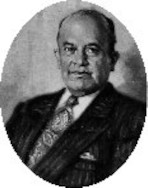 Edward Peter Carville: A Dedicated Statesman and Advocate for Nevada
Edward Peter Carville: A Dedicated Statesman and Advocate for Nevada
Introduction: Edward Peter Carville, a prominent figure in Nevada's political landscape, dedicated his life to public service and the betterment of his state. As the 18th Governor of Nevada and a Senator from Nevada, Carville made significant contributions to the development and progress of the state. This essay explores the life, career, and lasting impact of Edward Peter Carville, highlighting his political achievements, commitment to public service, and his enduring legacy.
Early Life and Education: Edward Peter Carville was born on May 14, 1885, in Mound Valley, Elko County, Nevada. Growing up in the heart of Nevada, Carville developed a deep love for his home state and its people. He pursued higher education and graduated with a law degree from the University of Notre Dame in Indiana in 1909. Equipped with legal knowledge and a passion for justice, Carville returned to Nevada to establish his law practice in Elko.
Political Career and Advocacy: Carville's political journey began with his appointment as a deputy district attorney from 1910 to 1911. He quickly gained recognition for his legal acumen and dedication to justice, serving as the district attorney for Elko County from 1912 to 1918. Carville's integrity and commitment to the rule of law led to his appointment as a district judge of Elko County in 1928. He continued to champion justice and uphold the principles of fairness and equality throughout his career.
In 1934, Carville's commitment to public service took him to the federal level when he was appointed as the United States Attorney for Nevada. He served in this role until 1938, fearlessly tackling complex legal issues and advocating for the interests of the state and its residents.
Governorship and Senate Service: Carville's political journey reached its pinnacle in 1939 when he assumed the office of the Governor of Nevada. His leadership during the challenging times of World War II and his focus on addressing government and economic issues greatly impacted the state. Carville's re-election in 1942 was a testament to his dedication and the trust placed in him by the people of Nevada.
Following the death of Senator James G. Scrugham, Carville was appointed to the United States Senate on July 24, 1945. Serving from July 25, 1945, to January 3, 1947, Carville continued his tireless advocacy for Nevada's interests at the national level. His commitment to serving the public and advancing progressive policies was evident throughout his tenure in the Senate.
Legacy and Impact: Edward Peter Carville's contributions to Nevada's political landscape and his commitment to public service have left a lasting impact on the state. As Governor, Carville's leadership during World War II and his focus on addressing pressing issues helped shape Nevada's trajectory during a critical time. His tenure as a Senator further solidified his dedication to representing the interests of Nevadans on the national stage.
Beyond his political career, Carville's legacy is characterized by his integrity, commitment to justice, and love for his state. His unwavering dedication to public service continues to inspire current and future leaders in Nevada. The impact of his leadership can be seen in the policies and reforms that he championed, which have shaped the social, economic, and legal landscape of the state.
Conclusion: Edward Peter Carville's life and career exemplify the essence of public service and dedication to the betterment of Nevada. His journey from local law practitioner to Governor and Senator is a testament to his unwavering commitment to the people he served. Carville's impact on Nevada's political landscape, his advocacy for justice, and his enduring legacy are testaments to his remarkable contributions.
Carville's commitment to public service, integrity, and dedication to justice continue to inspire and guide current and future leaders. His life serves as a reminder of the transformative power of political leadership and the profound impact it can have on the lives of individuals and the progress of a state. Edward Peter Carville will always be remembered as a dedicated statesman and advocate for the people of Nevada.
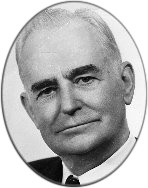 Vail Montgomery Pittman: A Leader Dedicated to Nevada's Progress
Vail Montgomery Pittman: A Leader Dedicated to Nevada's Progress
Introduction: Vail Montgomery Pittman, a distinguished businessman and politician, dedicated his life to serving the state of Nevada. As the 19th Governor of Nevada, Pittman made significant contributions to the development and progress of the state. This essay delves into the life, career, and enduring legacy of Vail Montgomery Pittman, highlighting his political achievements, business ventures, and commitment to public service.
Early Life and Education: Born on September 17, 1880, in Vicksburg, Mississippi, Vail Pittman was the youngest of four sons of William Buckner Pittman and Katherine Key Pittman. His family had deep roots in American history, with Katherine Key Pittman being a direct descendant of Francis Scott Key. Following the death of his parents, Pittman and his siblings were raised by their uncle and aunt, Mr. and Mrs. Vail Montgomery, in Lake Providence, Louisiana. Pittman received his education from private tutors and public schools before attending Sewanee Military Academy. He further pursued his studies at the University of the South and Brown's Business College.
Career and Business Ventures: In 1903, following the death of his namesake uncle, Vail Montgomery, Pittman returned to Lake Providence to manage the family cotton plantation. However, his path eventually led him to Nevada in 1904, where he settled in Tonopah. He initially worked at the Tonopah-Goldfield Lumber and Coal Company before venturing into the coal business independently. Pittman's entrepreneurial spirit led him to success, as he later sold the coal business and engaged in various occupations. He served as undersheriff of Nye County and sergeant-at-arms of the Nevada Senate. Additionally, Pittman became a partner in a mining company, showcasing his versatility and dedication to Nevada's industries.
Newspaper Business and Civic Engagement: In 1920, Pittman and his wife, Ida Louise Brewington, purchased the Ely Daily Times in Ely, Nevada, marking his entry into the newspaper business. His career in the newspaper industry flourished, contributing to the growth of the Ely Daily Times and establishing Pittman as a respected figure in the media landscape. Alongside his business ventures, Pittman remained engaged in civic and business organizations, including the good roads movement and the local chamber of commerce. His commitment to community development and progress aligned with his vision for a prosperous Nevada.
Political Career and Governorship: Pittman's political career took off when he served in the Nevada Senate from 1925 to 1929. In the aftermath of his brother Key Pittman's death in 1940, Vail Pittman sought the governor's appointment to his brother's U.S. Senate seat but was unsuccessful. However, his political journey continued as he was elected the 19th lieutenant governor of Nevada in 1942. Pittman's commitment to public service and leadership led him to assume the role of Governor of Nevada in 1945 when Edward P. Carville resigned to accept a U.S. Senate seat. He was later elected to a full term as governor in 1946, where he served until 1951.
Legacy and Contributions: Vail Montgomery Pittman's legacy is characterized by his dedication to Nevada's progress and his unwavering commitment to public service. As Governor, he focused on addressing critical issues and driving economic growth during his tenure. Pittman's endeavors in the newspaper industry also played a significant role in shaping public discourse and fostering community engagement.
Even after leaving office, Pittman continued to contribute to Nevada's growth and development. He resumed operating the Ely Daily Times, utilizing his media platform to inform and empower the community. Additionally, Pittman's involvement in civic organizations, such as the Rotary Club, demonstrated his enduring commitment to public welfare and international cooperation.
Conclusion: Vail Montgomery Pittman's life and career exemplify the qualities of leadership, dedication, and service. His journey from a Mississippi native to a prominent political figure in Nevada showcases his commitment to the betterment of the state and its residents. Pittman's entrepreneurial ventures, involvement in the newspaper industry, and political accomplishments have left an indelible mark on Nevada's history.
Pittman's legacy as a visionary leader, businessperson, and advocate for Nevada's progress continues to inspire present and future leaders. His commitment to public service and civic engagement serve as a reminder of the transformative power of leadership and the lasting impact it can have on a state's development. Vail Montgomery Pittman will always be remembered as a dedicated leader who dedicated his life to the progress and prosperity of Nevada.
 Charles Hinton Russell: A Steadfast Leader for Nevada's Progress
Charles Hinton Russell: A Steadfast Leader for Nevada's Progress
Introduction: Charles Hinton Russell, an esteemed politician and dedicated public servant, played a significant role in shaping the course of Nevada's history. As the 20th Governor of Nevada, Russell's leadership, political career, and unwavering commitment to the state left an indelible mark on its development. This essay explores the life, accomplishments, and enduring legacy of Charles Hinton Russell, highlighting his contributions to Nevada's progress.
Early Life and Education: Born on December 27, 1903, in Lovelock, Nevada, Charles Hinton Russell grew up in the heart of the Silver State. He pursued higher education at the University of Nevada and graduated in 1926. Following his graduation, Russell taught school in Ruby Valley for a term before embarking on a career at the copper company in Ruth. However, it was in the field of journalism that Russell found his true calling.
Journalism and Political Career: Russell's journalistic journey began in 1929 when he assumed the role of editor for the Ely Record, a position he held for an impressive seventeen years. Through his work in the newspaper industry, Russell became a respected voice in the community, shaping public opinion and fostering informed discussions on critical issues.
In 1941, Russell's passion for public service led him to venture into politics. He served as a member of the Nevada State Senate from 1941 to 1946, making significant contributions to the legislative process and championing the interests of his constituents. Russell's dedication to public welfare and his ability to bridge political divides gained him widespread admiration and respect.
Congressional Tenure and Governorship: Russell's political aspirations propelled him further into the national political arena. In 1946, he was elected as a Republican to the Eightieth Congress, succeeding Democrat Berkeley L. Bunker. Russell's tenure in Congress marked a period of legislative accomplishments and a commitment to advancing the interests of Nevada at the federal level.
After an unsuccessful bid for reelection in 1948, Russell's unwavering determination led him to a new milestone in his political career. In 1951, he assumed the role of Governor of Nevada, a position that would shape the trajectory of the state's development for the years to come. As governor, Russell made significant policy strides, including signing into law SB79, which transformed Nevada into a right-to-work state. His tenure in the governor's office was marked by steadfast leadership, a commitment to economic growth, and a dedication to the welfare of Nevada's citizens.
Legacy and Contributions: Charles Hinton Russell's legacy is defined by his unwavering commitment to Nevada's progress and his ability to effect meaningful change through his political career. His contributions to the state extended beyond his tenure as governor, leaving an enduring impact on Nevada's political landscape.
Russell's dedication to public service and his ability to bridge political divides earned him the respect of colleagues and constituents alike. His accomplishments in Congress and as governor exemplified his commitment to advancing the interests of Nevada and improving the lives of its residents. By signing SB79 into law, Russell's leadership played a significant role in shaping Nevada's labor policies and fostering economic growth.
Furthermore, Russell's impact extended beyond his political career. His years as an esteemed journalist instilled in him a deep appreciation for the power of the press and the importance of informed public discourse. His work as an editor demonstrated his commitment to upholding journalistic integrity and informing the community about critical issues.
Conclusion: Charles Hinton Russell's life and career exemplify the qualities of leadership, dedication, and service. His journey from a small town in Nevada to the halls of Congress and the governor's office is a testament to his unwavering commitment to Nevada's progress. Russell's contributions to the state, both as a politician and a journalist, have left an indelible mark on its history.
Russell's enduring legacy serves as an inspiration for present and future leaders, reminding them of the transformative power of public service and the potential for positive change. Charles Hinton Russell will forever be remembered as a steadfast leader, dedicated to the betterment of Nevada and the prosperity of its people.
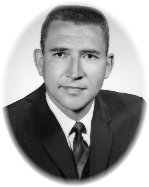 Frank Grant Sawyer: A Trailblazer in Nevada Politics
Frank Grant Sawyer: A Trailblazer in Nevada Politics
Introduction: Frank Grant Sawyer, a prominent figure in Nevada politics, played a pivotal role in shaping the state's trajectory during his tenure as the 21st Governor of Nevada. A member of the Democratic Party, Sawyer's progressive policies, unwavering commitment to civil rights, and efforts to reform the gaming industry left an indelible mark on the state. This essay explores Sawyer's life, accomplishments, and enduring legacy, highlighting his contributions to Nevada's political landscape.
Early Life and Education: Frank Grant Sawyer was born on December 14, 1918, in Twin Falls, Idaho, to Harry William and Bula Belle Cameron Sawyer, both osteopaths. His father, a state legislator in Nevada, instilled in him a deep appreciation for public service from a young age. Sawyer served in the U.S. Army during World War II and married Bette Norene Hoge in 1946.
Sawyer pursued his education at Linfield College and later enrolled at the University of Nevada, Reno, where he graduated in 1941. As a student at Nevada, he became a member of the Alpha Tau Omega fraternity. However, his studies were interrupted when he enlisted in the army at the onset of World War II. After his military service, Sawyer attended Georgetown University and received a law degree in 1946 from The George Washington University Law School.
Political Career and Governorship: Sawyer's political career began when he served as the District Attorney for Elko County, Nevada, from 1950 to 1958. In 1959, he assumed the role of Governor of Nevada, a position he held for two consecutive terms until 1967. As governor, Sawyer advocated for progressive change, leading him to clash with the establishment and powerful interest groups.
Governor Sawyer's notable achievements include his efforts to advance civil rights policies and legislation in a state that had previously been criticized as "the Mississippi of the West." His commitment to equal rights faced staunch opposition, but Sawyer remained resolute in his pursuit of justice and equality. Additionally, he played a pivotal role in the development of the modern casino regulatory system through the passage of the Gaming Control Act of 1959 and the establishment of the Nevada Gaming Commission. Sawyer's stance against corporate ownership of Nevada casinos reflected his dedication to preserving the integrity and independence of the state's gambling industry.
Furthermore, Sawyer became the first western governor to endorse Senator John F. Kennedy's presidential campaign in 1960, highlighting his progressive outlook and willingness to support candidates who championed his vision for the nation.
Later Years and Legacy: Following his tenure as governor, Sawyer co-founded the prominent law firm Lionel Sawyer & Collins in 1967. The firm became one of Nevada's largest private law firms, serving as a testament to Sawyer's legal acumen and continued dedication to public service. While the firm ceased operations in 2014, Sawyer's impact on the legal profession and the state of Nevada endured.
Frank Grant Sawyer passed away on February 19, 1996, in Las Vegas, Nevada, at the age of 77. His enduring legacy lies in his unwavering commitment to progressive change, his fight for civil rights, and his determination to confront powerful interests for the betterment of Nevada and its citizens. The Grant Sawyer Building, Grant Sawyer Middle School, and the Grant Sawyer Center for Justice Studies stand as testament to his contributions and serve as reminders of his lasting impact on the state.
Conclusion: Frank Grant Sawyer's life and political career exemplify the qualities of leadership, resilience, and progressive values. As Nevada's 21st Governor, Sawyer tackled significant challenges and advanced policies that shaped the state's social, economic, and political landscape. His commitment to civil rights, reforming the gaming industry, and his unwavering dedication to the welfare of the state and its citizens cemented his status as a trailblazer in Nevada politics. Sawyer's legacy lives on through the institutions that bear his name, continuing to inspire future generations of leaders in Nevada and beyond.
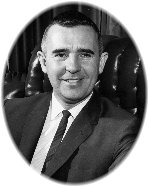 Paul Laxalt: A Trailblazer in Nevada Politics and a Trusted Friend of Ronald Reagan
Paul Laxalt: A Trailblazer in Nevada Politics and a Trusted Friend of Ronald Reagan
Introduction: Paul Laxalt, a prominent American attorney and politician, left an indelible mark on Nevada's political landscape and earned a place as one of Ronald Reagan's closest allies. Born into humble beginnings as the son of Basque immigrants, Laxalt's journey from serving as a district attorney to becoming the governor of Nevada and a United States senator is a testament to his perseverance, pragmatic leadership, and enduring commitment to public service. This essay explores the life, accomplishments, and enduring legacy of Paul Laxalt.
Early Life and Political Beginnings: Paul Laxalt was born on August 2, 1922, in Reno, Nevada, to Basque parents who had immigrated from the French Pyrenees. Raised in a family of modest means, Laxalt's values of hard work, determination, and community service were instilled in him from a young age. After serving as a medic during World War II, Laxalt pursued a law degree from the Sturm College of Law.
Laxalt's political journey began in 1950 when he was elected as the District Attorney of Ormsby County, Nevada. Known for his strong work ethic and dedication to justice, he served two terms in this position before his ambitions led him to seek statewide office.
Governorship and Transformative Contributions: In 1966, Paul Laxalt secured a decisive victory against incumbent Governor Grant Sawyer, becoming the 22nd governor of Nevada. During his tenure, Laxalt championed several progressive policies that reshaped the state. He recognized the importance of cooperating with federal authorities in regulating the gambling industry, leading to the establishment of the Nevada Gaming Commission and the modern casino regulatory system through the Gaming Control Act of 1959.
Laxalt also supported corporate ownership of gaming operations, a position that was controversial at the time but paved the way for the development of Nevada's flourishing casino industry. His pragmatic approach to governance was further demonstrated by his commitment to improving education, infrastructure, and prison reform in the state. Laxalt's accomplishments during his term as governor left an indelible impact on Nevada's development and set the stage for its future growth.
Friendship with Ronald Reagan and National Influence: One of the defining aspects of Paul Laxalt's political career was his deep friendship with Ronald Reagan. The two had first connected as neighboring governors, and their shared conservative values and vision for America solidified their bond. Laxalt played a pivotal role in Reagan's political campaigns, serving as his national chairman for three presidential campaigns and delivering a powerful nomination speech at the Republican National Conventions.
Laxalt's influence extended beyond Nevada, as he became one of Reagan's most trusted advisors and confidants. Their close relationship earned him the moniker "the first friend" after Reagan assumed the presidency in 1980. Laxalt's unwavering loyalty and pragmatic leadership style made him a respected figure in national politics, admired for his ability to work across party lines and build relationships with colleagues from all backgrounds.
Legacy and Commitment to Public Service: After leaving the governor's mansion, Laxalt went on to serve as a United States senator from Nevada. During his two terms in the Senate, he remained dedicated to pragmatic leadership, focusing on finding common ground and advancing bipartisan solutions. Laxalt's integrity and reputation as a "straight shooter" earned him respect from both sides of the aisle, enabling him to effectively advocate for his constituents and shape national policies.
Beyond his political career, Laxalt's commitment to public service extended to his establishment of the "Intern" program, which provided college students with opportunities to work in his Senate office. Many of these interns went on to have successful careers in government and business, a testament to Laxalt's dedication to nurturing future leaders.
Conclusion: Paul Laxalt's life and political career exemplify the values of hard work, dedication, and pragmatic leadership. From his humble beginnings as the son of Basque immigrants to his rise as a trailblazing politician and trusted friend of Ronald Reagan, Laxalt's legacy endures in Nevada's political history. His transformative contributions, including his efforts to regulate the gambling industry and improve education and infrastructure, shaped the state's development. Laxalt's commitment to public service and his ability to bridge political divides serve as an inspiration for future generations of leaders.
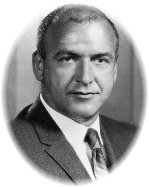 Donal Neil "Mike" O'Callaghan: A Life of Service and Tenacity
Donal Neil "Mike" O'Callaghan: A Life of Service and Tenacity
Introduction:
Donal Neil "Mike" O'Callaghan was a remarkable individual whose life was characterized by resilience, diverse experiences, and a deep commitment to public service. From his humble beginnings as a rancher and ironworker to his influential roles as a teacher, soldier, and politician, O'Callaghan's journey is a testament to the power of determination and dedication. Throughout his life, he demonstrated a passion for helping others and made a significant impact in various fields, leaving behind a legacy of service and compassion. This essay explores the remarkable life and achievements of Donal Neil "Mike" O'Callaghan, highlighting his career trajectory, his advocacy for Israel, and his enduring love for his golden retrievers.
A Life of Adaptability:
Donal Neil "Mike" O'Callaghan possessed a remarkable ability to adapt and excel in diverse professions. Over the course of his life, he held a range of jobs, including rancher, ironworker, teacher, boxing coach, railroad worker, soldier, probation officer, state director of Health and Welfare, and federal Job Corps official. This diverse array of experiences not only showcased O'Callaghan's versatility but also shaped his understanding of the challenges faced by different sectors of society.
Commitment to Public Service:
O'Callaghan's true calling was found in public service, where he dedicated his life to improving the lives of others. As a teacher and boxing coach, he inspired and mentored countless young individuals, instilling in them the values of discipline and determination. His military service as a soldier further exemplified his commitment to protecting and serving his country.
Political Career and Impact:
O'Callaghan's political career marked a significant chapter in his life. Serving as the governor of Nevada from 1971 to 1979, he implemented various progressive policies and reforms that aimed to enhance education, healthcare, and social welfare in the state. O'Callaghan's leadership was characterized by a strong sense of fiscal responsibility and a dedication to serving the interests of the people.
Advocate for Israel:
In addition to his domestic achievements, O'Callaghan was a staunch supporter and friend of Israel. He recognized the historical and strategic significance of the U.S.-Israel relationship and actively advocated for their partnership. O'Callaghan's unwavering support for Israel demonstrated his commitment to promoting peace and stability in the Middle East.
Love for Golden Retrievers:
Outside of his professional endeavors, O'Callaghan had a deep affection for his golden retrievers. When he passed away, he was survived by two loyal companions. This personal aspect of his life highlights his capacity for love and his appreciation for the companionship and loyalty that animals can provide.
Conclusion:
Donal Neil "Mike" O'Callaghan's life was an extraordinary journey of perseverance, adaptability, and service. From his humble beginnings to his influential roles in education, politics, and public service, he consistently demonstrated a deep commitment to improving the lives of others. O'Callaghan's support for Israel showcased his international perspective and his dedication to promoting peace and stability. Furthermore, his enduring love for his golden retrievers exemplified his capacity for affection and companionship. Donal Neil "Mike" O'Callaghan will be remembered as a tenacious and compassionate individual who made a lasting impact in multiple arenas, leaving behind a legacy that inspires others to pursue lives of service and empathy.
 Biography of Robert Frank "Bob" List: Robert Frank "Bob" List, born on September 1, 1936, is an American attorney and politician who has left a significant mark on Nevada's political landscape. As a member of the Republican Party, List served as the 24th Governor of Nevada from 1979 to 1983. Prior to his governorship, List held various public positions, including Nevada Attorney General from 1971 to 1979 and Carson City District Attorney from 1967 to 1971. List received his J.D. and LL.D. degrees from the University of California, Hastings College of the Law in 1962. After his term as governor, List became a supporter of the Yucca Mountain nuclear waste repository and continued his career as an attorney, practicing law in Las Vegas with the firm Kolesar & Leatham, Chtd. Throughout his political career, List demonstrated his commitment to public service and contributed to shaping Nevada's legal and political landscape.
Biography of Robert Frank "Bob" List: Robert Frank "Bob" List, born on September 1, 1936, is an American attorney and politician who has left a significant mark on Nevada's political landscape. As a member of the Republican Party, List served as the 24th Governor of Nevada from 1979 to 1983. Prior to his governorship, List held various public positions, including Nevada Attorney General from 1971 to 1979 and Carson City District Attorney from 1967 to 1971. List received his J.D. and LL.D. degrees from the University of California, Hastings College of the Law in 1962. After his term as governor, List became a supporter of the Yucca Mountain nuclear waste repository and continued his career as an attorney, practicing law in Las Vegas with the firm Kolesar & Leatham, Chtd. Throughout his political career, List demonstrated his commitment to public service and contributed to shaping Nevada's legal and political landscape.
 Biography of Richard Hudson Bryan: Richard Hudson Bryan, born on July 16, 1937, is a retired American politician and attorney who made significant contributions to Nevada's governance. As a Democrat, Bryan served as the 25th Governor of Nevada from 1983 to 1989 and later represented Nevada in the United States Senate from 1989 to 2001. Before assuming the governorship, Bryan served as the state's attorney general and was a member of the State Senate. He played a key role in preventing the use of Yucca Mountain as a long-term nuclear waste storage site. Bryan earned his J.D. degree from the University of California, Hastings College of the Law, and was admitted to the Nevada Bar in 1963. During his tenure in the Senate, Bryan served on several committees, including Finance, Banking, Intelligence, and Commerce. Throughout his political career, Bryan demonstrated his dedication to Nevada's interests and worked to shape policies that reflected the values and aspirations of the state's residents.
Biography of Richard Hudson Bryan: Richard Hudson Bryan, born on July 16, 1937, is a retired American politician and attorney who made significant contributions to Nevada's governance. As a Democrat, Bryan served as the 25th Governor of Nevada from 1983 to 1989 and later represented Nevada in the United States Senate from 1989 to 2001. Before assuming the governorship, Bryan served as the state's attorney general and was a member of the State Senate. He played a key role in preventing the use of Yucca Mountain as a long-term nuclear waste storage site. Bryan earned his J.D. degree from the University of California, Hastings College of the Law, and was admitted to the Nevada Bar in 1963. During his tenure in the Senate, Bryan served on several committees, including Finance, Banking, Intelligence, and Commerce. Throughout his political career, Bryan demonstrated his dedication to Nevada's interests and worked to shape policies that reflected the values and aspirations of the state's residents.
Lawyers in Public Office: Assessing the Challenges through the Lens of Robert Frank "Bob" List and Richard Hudson Bryan
Introduction:
The presence of lawyers in public office has been a longstanding practice, with individuals like Robert Frank "Bob" List and Richard Hudson Bryan making significant contributions as former Nevada governors. However, this essay takes a critical perspective, arguing that lawyers should not hold public office. The inherent conflicts of interest, potential biases, and lack of diversity associated with lawyers in public office can undermine the principles of accountability, transparency, and fair representation. By examining the careers of List and Bryan, we can better understand the challenges that arise when lawyers occupy positions of political power.
Conflict of Interest and Hidden Agendas:
One of the primary concerns with lawyers in public office is the potential conflict of interest. Lawyers often have clients or causes that may intersect with their public duties or policies, leading to a compromised decision-making process. This conflict can hinder the pursuit of the public interest and erode trust in the political system. Additionally, lawyers may harbor hidden agendas influenced by their professional affiliations or personal beliefs, which can further distort their decision-making process.
Manipulation of the Law and Public Interest:
Lawyers possess a unique skill set and knowledge of the legal system, which can be both beneficial and problematic when it comes to their role as public officials. While legal expertise is valuable in crafting legislation and navigating complex legal issues, there is also a risk that lawyers may exploit their knowledge to manipulate or evade the law for personal or political gain. This manipulation can undermine the rule of law and erode public trust in the fairness and integrity of the system.
Lack of Diversity and Representation:
The overrepresentation of lawyers in public office raises concerns about the lack of diversity and representation of other professions, backgrounds, and perspectives. Lawyers tend to view issues through a legal lens, which may limit their ability to consider broader social, economic, and cultural perspectives. The absence of diverse voices can lead to policies that fail to address the needs and aspirations of the entire population, perpetuating inequality and marginalization.
Accountability and Transparency:
Lawyers in public office may enjoy certain legal privileges or immunities that shield them from adequate scrutiny and accountability. These privileges, intended to protect the justice system, can create barriers to transparency and hinder the public's ability to hold lawyers-turned-politicians accountable for their actions. Such lack of transparency undermines the principles of open governance and may foster a culture of impunity.
Conclusion:
While individuals like Robert Frank "Bob" List and Richard Hudson Bryan have made noteworthy contributions to public service, the presence of lawyers in political positions raises valid concerns. The inherent conflicts of interest, potential biases, manipulation of the law, lack of diversity, and reduced accountability associated with lawyers in public office undermine the democratic principles of fairness, representation, and transparency. As we strive for a more inclusive and equitable political system, it is essential to critically assess the role of lawyers and explore alternative avenues for diverse and representative leadership.
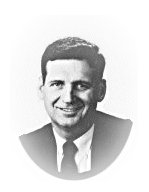 Bob Miller: A Legacy of Leadership in Nevada
Bob Miller: A Legacy of Leadership in Nevada
Introduction: Bob Miller's tenure as Governor of Nevada marked a significant chapter in the state's political history. While it is noteworthy that Nevada experienced over two decades of lawyer governors, it is equally essential to examine Miller's contributions as a leader. This essay explores Bob Miller's accomplishments, his impact on Nevada's governance, and the lasting legacy he left behind.
Bob Miller's Dedication to Public Service: Bob Miller's early career in law laid the foundation for his entrance into politics, but it was his commitment to public service and desire to make a positive impact that defined his tenure as Governor. Miller's successful gubernatorial campaigns and multiple terms in office were a testament to the trust and confidence placed in him by the voters.
Economic Development and Diversification: One of Miller's primary focuses as Governor was on diversifying Nevada's economy beyond gaming and tourism. His initiatives aimed at attracting new industries and promoting job creation played a pivotal role in driving economic growth. Additionally, Miller recognized the importance of investing in infrastructure development, enhancing transportation networks, education systems, and healthcare facilities to improve the quality of life for Nevada residents.
Education and Social Initiatives: Miller's dedication to improving Nevada's education system was evident through his support for increased funding, teacher training, and student achievement. He also prioritized addressing social issues and supporting disadvantaged communities through various social welfare programs. Miller's efforts aimed to enhance healthcare access and assist vulnerable populations.
Fiscal Responsibility and Good Governance: Miller's commitment to responsible fiscal management was exemplified by his efforts to balance the state budget and promote financial stability. He championed transparency, accountability, and ethical conduct in government, ensuring public trust in the administration. Miller's leadership upheld high standards of governance throughout his tenure.
Legacy and Impact: Bob Miller's contributions to Nevada's progress are undeniable. Under his leadership, the state experienced positive changes and advancements in various sectors. His initiatives continue to shape Nevada's economy, infrastructure, and social welfare. Miller's ability to unite people across party lines and work towards common goals earned him respect and admiration throughout his time in office.
Conclusion: Bob Miller's legacy as Governor of Nevada goes beyond the fact that the state endured over two decades of lawyer governors. His leadership, vision, and dedication to public service left an indelible mark on Nevada's history. Miller's focus on economic diversification, education reforms, fiscal responsibility, and good governance propelled the state forward. As we reflect on his tenure, let us remember and appreciate Bob Miller as a leader who strived to make a positive difference in the lives of Nevadans, leaving a lasting legacy of progress and prosperity.
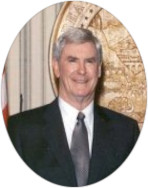 Kenny Guinn: A Leader Committed to Nevada's Progress
Kenny Guinn: A Leader Committed to Nevada's Progress
Introduction: Kenny Guinn's tenure as Governor of Nevada was characterized by his unwavering dedication to the state's development and his commitment to serving its citizens. This essay explores the life and accomplishments of Kenny Guinn, highlighting his transformative leadership, fiscal responsibility, and commitment to education, which left an indelible mark on Nevada's history.
Early Life and Professional Career: Kenny Guinn's journey to becoming Nevada's governor began with humble origins. Born in Garland, Arkansas, Guinn overcame adversity and worked his way up through the ranks of the business world. He established a successful career in finance and banking, eventually becoming the CEO of the Nevada Savings and Loan Association.
Governorship and Fiscal Responsibility: Guinn's time as Governor, spanning from 1999 to 2007, was marked by his commitment to fiscal responsibility and prudent financial management. He navigated the state through economic challenges, ensuring sound budgetary practices, and making tough decisions to maintain Nevada's fiscal stability. Guinn's emphasis on responsible governance earned him widespread respect and admiration.
Education and Reform: One of Guinn's most significant contributions was his commitment to education. Recognizing the importance of a strong educational system for Nevada's future, he spearheaded comprehensive education reform initiatives. Guinn advocated for increased funding, implemented performance-based accountability measures, and championed innovative programs to improve student achievement. His commitment to education left a lasting impact on the state's educational landscape.
Economic Development and Diversification: Under Guinn's leadership, Nevada experienced substantial economic growth and diversification. He actively sought to attract new industries, expand job opportunities, and reduce the state's reliance on gaming and tourism. Guinn's economic policies helped pave the way for Nevada's emergence as a thriving business hub, attracting investment and fostering entrepreneurship.
Community Engagement and Collaboration: Guinn's leadership style was characterized by his ability to bring people together and foster collaboration. He engaged with community leaders, stakeholders, and citizens to address the state's most pressing challenges. Guinn believed in the power of partnerships and worked tirelessly to build consensus and forge alliances that would benefit Nevada as a whole.
Legacy and Impact: Kenny Guinn's legacy in Nevada is defined by his visionary leadership, fiscal prudence, and unwavering commitment to education. His initiatives and reforms continue to shape the state's economic landscape and educational system. Guinn's legacy extends beyond his time in office, as his impact is felt by Nevadans who have benefitted from his dedication to progress and prosperity.
Conclusion: Kenny Guinn's tenure as Governor of Nevada was marked by his transformative leadership, fiscal responsibility, and commitment to education. His legacy is one of fiscal stability, economic diversification, and educational reform. Guinn's unwavering dedication to Nevada's progress and his ability to unite people around common goals have left an enduring impact on the state's development. As we reflect on his contributions, let us recognize Kenny Guinn as a visionary leader who devoted his life to serving Nevada and improving the lives of its citizens.